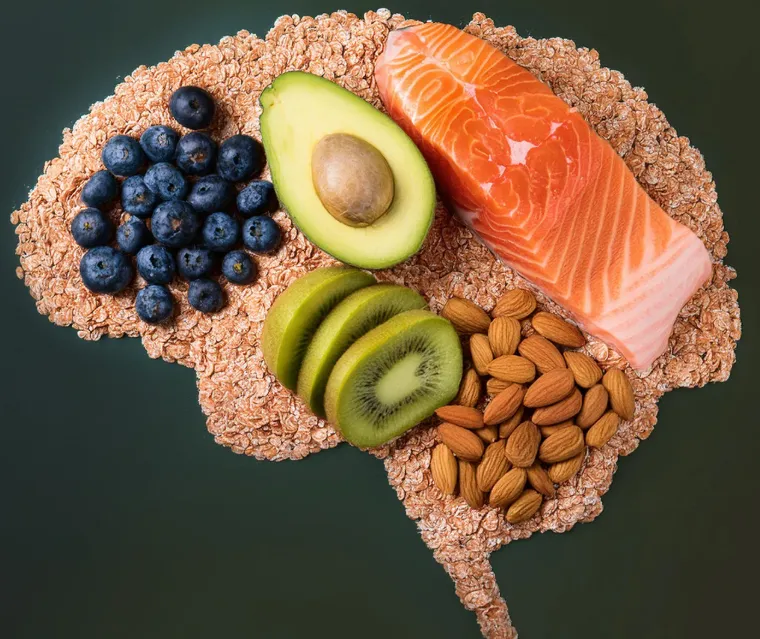
Brain Nutrition Basics: What Your Brain Actually Needs to Function
If you’ve been feeling foggy, unfocused, or just mentally “off,” your brain might be missing the fuel it needs to function.
We often turn to caffeine or supplements when our mental energy dips—but real clarity starts with real nourishment. Your brain is a high-energy organ, and if it’s not getting the right nutrients, it can’t perform the way it’s designed to. Let’s explore the core nutrients your brain depends on—and what small changes you can make today to support clarity, calm, and productivity.
Your Brain Runs on Fuel—A Lot of It
Even though it makes up only about 2% of your body weight, your brain uses around 20% of your energy at rest. That means even minor nutrient deficiencies can have noticeable effects on how you think, feel, and focus.
So what kind of fuel does your brain really need?
Healthy Fats: Building Blocks for Brain Structure
Your brain is nearly 60% fat, and the type of fat you eat literally becomes part of your brain’s structure. One of the most critical types is omega-3 fatty acids—especially DHA, which helps create strong, flexible membranes in your brain cells.
When you don’t get enough omega-3s, communication between brain cells slows down. That can feel like:
Memory issues
Slower thinking
Mental dullness or fog
Many people are eating too many inflammatory omega-6 fats from seed oils and processed foods—and not nearly enough omega-3s from wild-caught fish, grass-fed meats, or algae-based supplements. This imbalance increases inflammation in the brain and disrupts healthy communication.
Try this: Add one source of healthy fat each day. Think wild-caught salmon, walnuts, extra virgin olive oil, or a high-quality omega-3 supplement. One of my personal favorites? Homemade chocolate with coconut oil and cacao—just keep it in the freezer!
Essential Minerals: The Brain’s Electrical Current
Every thought you have is powered by tiny electrical signals—and those signals depend on minerals like magnesium, sodium, potassium, and calcium.
Without these minerals, the communication between neurons breaks down. You might feel:
Anxious or tense
Unfocused or scattered
Mentally fatigued
Magnesium, in particular, supports over 300 biochemical reactions in the body, including neurotransmitter production and nervous system regulation. And due to factors like poor soil quality and stress, most people aren’t getting enough.
Start your day with a mineral primer: a glass of filtered water with a pinch of high-quality sea salt (like Celtic salt) and a splash of lemon or trace mineral drops. I often recommend Trace Minerals Research 40,000 Volts for a more targeted boost—available through my Fullscript store.
B Vitamins: Fuel for Mood and Motivation
B6, B9 (folate), and B12 are essential for producing neurotransmitters like dopamine and serotonin—key players in mood, motivation, and focus. Without adequate B vitamins, your brain may struggle to:
Make or recycle neurotransmitters
Maintain mental stamina
Regulate mood effectively
Symptoms of low B vitamins can include brain fog, low motivation, or even mild depression. These vitamins are especially important for people under chronic stress or those with poor digestion, as absorption can be reduced.
To support B vitamin intake, focus on high-quality animal proteins, leafy greens, and if needed, a methylated B-complex supplement.
Glucose: Steady Fuel, Not Sugar Surges
Your brain runs on glucose—but it needs a steady stream, not dramatic spikes and crashes. Blood sugar instability can lead to:
Mental fog
Irritability
Sudden fatigue
If you start your day with a sugary or carb-heavy breakfast, your brain may get flooded with fuel—and then crash. This rollercoaster throws off everything from your focus to your emotional resilience.
The solution? Build meals around protein, fat, and fiber. These macronutrients slow down glucose absorption and help your brain get a more reliable supply of energy throughout the day.
Two Simple Steps to Start Nourishing Your Brain
You don’t have to overhaul everything overnight. Here are two easy, high-impact habits you can begin right away:
Add a brain-nourishing fat each day.
A small serving of wild-caught fish, a few walnuts, a spoonful of olive oil, or a quality omega-3 supplement can begin to rebuild your brain’s structure and reduce inflammation.Try a mineral primer in the morning.
Start your day with a glass of water, a pinch of sea salt, and a little lemon or trace mineral drops. This quick ritual supports hydration, electrical signaling, and overall mental clarity.
When you give your brain what it needs, it responds. You don’t need to chase every new trend—just restore the fundamentals. That’s where lasting clarity and calm begin.
If you want to go deeper and find out which nutrients your brain specifically needs, check out my free Feed Your Brain Workshop. You’ll learn how to identify gaps and begin rebuilding your foundation—one nourishing step at a time.
